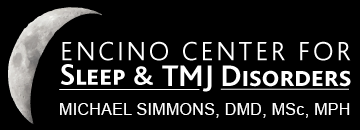Sleep Apnea is Often Misunderstood
Though sleep apnea is a very common disorder, affecting around 25% of Americans aged 30-70 (over 60 million people), there are many misconceptions about it. Learn about some of the most common myths surrounding sleep apnea as well as the truth behind them.
1. Snoring Isn’t a Big Deal
Snoring is commonly seen as a quirk — some people twitch in their sleep, take up a lot of space in the bed, and some snore. But snoring isn’t harmless.
In fact, it’s one of the most common symptoms of sleep apnea. If you snore loudly and persistently, it’s recommended you undergo a sleep study to determine if you have sleep apnea.
But snoring isn’t always indicative of sleep apnea — it could be benign. Even if your snoring isn’t putting your life at risk, it can have negative effects on your relationships. Sharing a bed with a snorer can affect the sleep of your partner and is the third leading cause of divorce.
2. I’m Not Old Enough to Have Sleep Apnea
Though many think that sleep apnea doesn’t affect younger people, it can. Being older increases your risk of developing sleep apnea, but isn’t the only factor.
Sleep apnea can even affect children, but it’s often misdiagnosed as ADHD because of symptom overlap. Children who are affected by sleep disorders tend to act out, seem irritable, and have difficulty concentrating on tasks.
3. Sleep Apnea Only Affects Overweight People
Weight does play an important part in developing sleep apnea, but not being overweight doesn’t mean you can’t have the disorder. People of all weight ranges can have sleep apnea with about 1/3 of those with sleep apnea not overweight.
Sleep apnea has a lot to do with the circumference of your neck. A neck circumference of more than 16 inches for women or 17 inches for men can increase your risk of having sleep apnea.
If you do have sleep apnea, the condition can also affect your weight in turn. Weight gain associated with sleep apnea can worsen your condition by increasing your neck circumference.
4. I Feel Fine, So I Don’t Need Treatment
Many people don’t even realize they have a sleep disorder. Even if you wake up many times throughout the night, you may not remember it because it’s so brief. But your body is still affected by these interruptions.
If left untreated, sleep apnea can leave you at risk for more serious health conditions. You could develop high blood pressure, cardiovascular disease, memory problems, weight gain, and headaches.
Feeling tired throughout the day can lead to more mistakes, including vehicular accidents. Mistakes and lower productivity in the workplace lead people with sleep apnea to become unemployed more often.
5. CPAP Is the ONLY Sleep Apnea Treatment
CPAP is the most common form of sleep apnea treatment because it can improve the symptoms of the most severe cases of sleep apnea. But CPAP isn’t your only option.
Oral appliance therapy can be just as effective and is preferred by patients when they have tried both CPAP and oral appliance therapy. There are also surgical options and some newer non-surgical laser therapies that can address improving the connective tissue in the upper airway.
Dr. Simmons can provide you with a customized oral appliance that can treat sleep apnea just as well as a CPAP machine, in many cases. These mouthpieces are small, making them easy to travel with and they’re also completely quiet.
Dr. Simmons Can Help You
If you’ve noticed the symptoms of sleep apnea in yourself or a loved one, undergoing a sleep study can help to determine the treatment you need. When you have a diagnosis of sleep apnea, Dr. Simmons can treat you and restore your ability to thrive.
Call our office at 818-300-0070 to learn more and start your journey towards better sleep and more energy.

